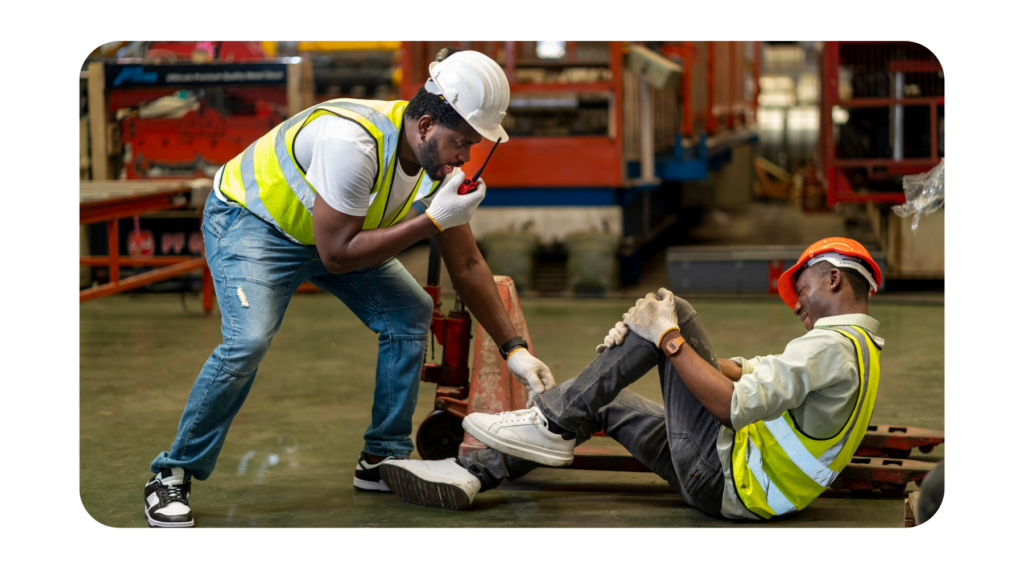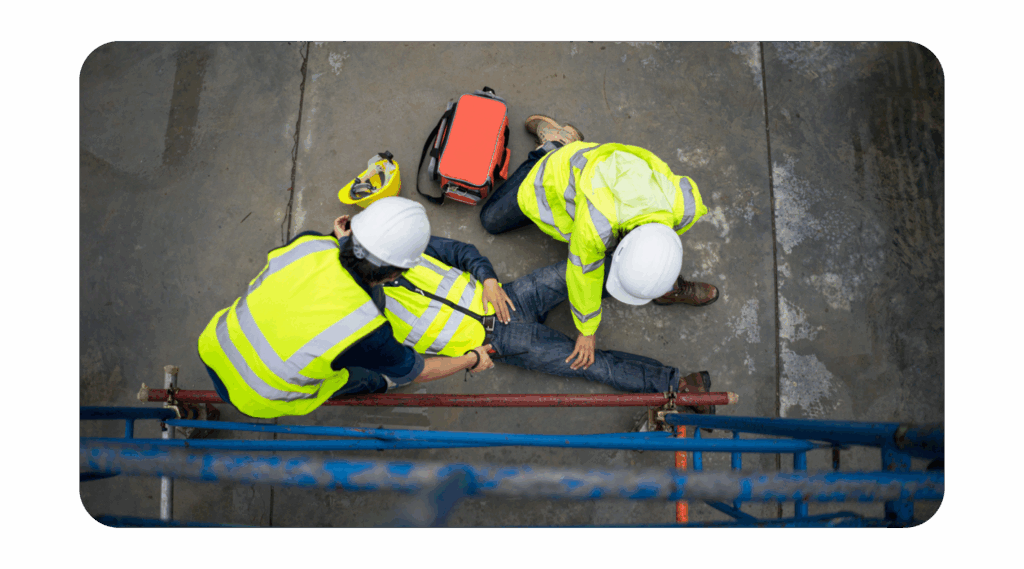Third-Party Liability in Construction Accidents: Who Else Can Be Held Responsible?

When someone gets hurt on a construction site, the first thing people often think about is workers’ compensation. And while that’s an important route for many injured workers, it doesn’t always tell the whole story, especially when someone other than your direct employer is partly to blame. That’s where third-party liability comes in.
Third-party liability construction accidents often involve complex legal questions about who can be held accountable when multiple parties are working on the same site. Construction sites are busy places. On any given day, there might be general contractors, subcontractors, crane operators, electricians, delivery drivers, property owners, and equipment manufacturers all playing a role in the day-to-day operations. If something goes wrong, it can be complicated figuring out who is actually responsible, and whether you can sue them.
Key Takeaways:
Why Third-Party Liability Matters
Workers’ compensation is limited. It usually covers medical expenses and a portion of lost wages, but it doesn’t account for pain and suffering, loss of future income, or other long-term effects. That’s why third-party lawsuits can be so critical; they open the door to fuller financial recovery.
Let’s say a scaffolding collapse was caused by a subcontractor who failed to secure it properly. Or maybe a crane malfunctioned because of a manufacturer’s defect. These are examples where third-party claims might apply. You wouldn’t sue your employer, you’d sue the party whose actions (or inaction) contributed to your injury.
And these lawsuits aren’t rare. According to the Bureau of Labor Statistics, over 170,000 construction workers are injured annually. Falls, electrocutions, and being struck by objects are among the most common causes, many of which can involve third-party negligence.
Real-World Example: The Subcontractor Shortcut

Consider this: A worker is pouring concrete on the second floor of a new development. The floor collapses, sending them down into the level below. An investigation finds that a subcontractor cut corners reinforcing the support beams. That subcontractor doesn’t work for the injured person’s company, but their negligence caused the accident.
In this situation, the worker might still collect workers’ comp through their employer, but they could also pursue a subcontractor negligence claim for additional damages.
Who Can Be Held Liable?
A third-party claim isn’t limited to just subcontractors. Here are a few other parties that could be held accountable depending on the situation:
- Property Owners: If a site owner fails to maintain a safe environment or doesn’t warn about known hazards.
- Equipment Manufacturers: If a defective product or poorly designed tool leads to injury.
- Architects or Engineers: If flawed plans or structural miscalculations cause an accident.
- Vendors or Delivery Drivers: If someone making a delivery causes a hazard that leads to injury.
In many cases, more than one party may be responsible. Construction sites are complex, and one misstep can create a domino effect that causes serious harm.
What About Workers’ Comp?
It’s important to understand that a third-party lawsuit is not a replacement for workers’ compensation; they can happen alongside each other. The two systems are separate. If you’re injured on the job, you should still file a workers’ comp claim. But if someone outside your employer’s company contributed to the accident, you might also have a valid third-party claim in a construction accident.
This dual-claim approach can be powerful. Workers’ comp helps with immediate costs, while the third-party lawsuit can help with long-term damages that workers’ comp doesn’t touch.
What Makes These Cases So Complicated?

Here’s where things get tricky. Proving third-party liability often involves a deep investigation. You’re not just showing that you got hurt, you’re showing why and who contributed to it. That usually means gathering:
- Eyewitness statements
- Job site safety records
- Maintenance logs
- Equipment design specifications
- Subcontractor agreements and duties
- Expert testimony
Why You Need a Lawyer
These cases require a specific legal skill set. You want someone who understands both construction site injury liability and third-party lawsuits for workers’ injuries, ideally, a firm that’s handled complex injury litigation tied to unsafe job sites or defective equipment.
At LMS Law, our team has helped injured construction workers uncover the real causes behind their accidents and pursue compensation beyond the limits of workers’ comp. Whether it’s holding a property owner accountable or building a case against an equipment manufacturer, we know how to dig deeper and fight for what’s fair.
Get Help with Your Construction Injury Claim Today
Construction work is physically demanding and often dangerous. When injuries happen, they can lead to long recoveries, mounting expenses, and complicated legal questions, especially if someone other than your employer was involved.
If you’ve been injured on a construction site due to subcontractor negligence, unsafe conditions, or defective equipment, you may have the right to pursue a third-party liability claim. At LMS Law, we focus on construction injury claims and are committed to helping injured workers hold all responsible parties accountable.
Contact us today for a free consultation. We’ll take the time to understand your case, explain your legal options, and guide you through every step of the process. Call (415) 400-7000 or reach out online. If you’re unable to come to us, we’re happy to meet you at home or in the hospital. Let’s make sure you get the full compensation you’re entitled to.
FAQs
Who can be held liable in a construction accident besides the employer?
Property owners, subcontractors, equipment manufacturers, architects, engineers, and vendors can all potentially be held liable if their negligence contributed to the accident.
How does third-party liability affect construction injury claims?
It allows injured workers to seek additional compensation beyond what workers’ comp provides, including damages for pain, suffering, and future lost income.
Can I file a lawsuit against a subcontractor for a construction accident?
Yes, if the subcontractor’s actions or negligence played a role in causing your injury, you may be able to file a third-party lawsuit against them.
The above is not meant to be legal advice, and every case is different. Feel free to reach out to us at LMS Law if you have any questions. Information contained in this content and website should not be relied on as legal advice. You should consult an attorney for advice on your specific situation.
Visiting this site or relying on information gleaned from the site does not create an attorney-client relationship. The content on this website is the property of LMS Law and may not be used without the written consent thereof.


